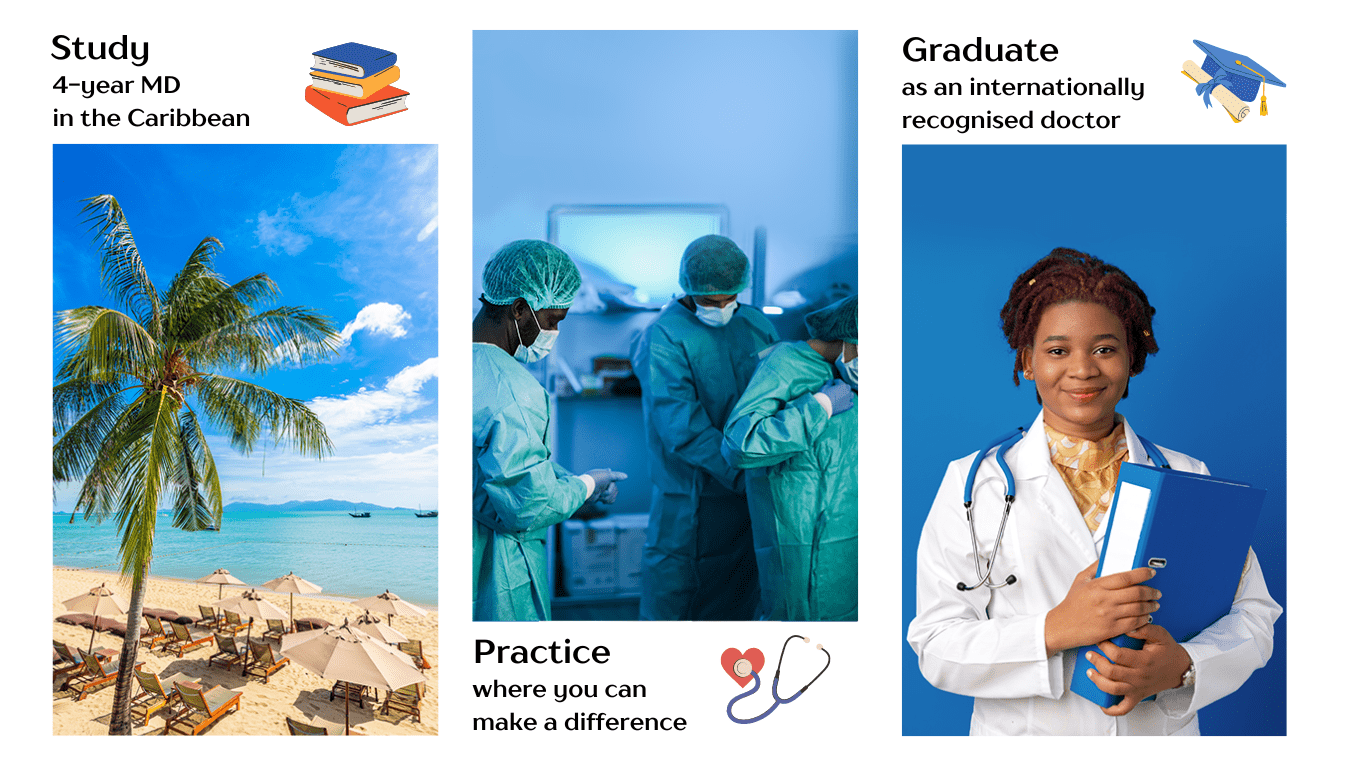Most Common Reasons Medical School Applicants Get Rejected

Believe it or not, the vast majority of Medical School applicants get rejected. According to the Medical School Council, more than 65% of students fail to get accepted into a Medical University in the UK alone. In France, the acceptance rate dropped to a staggering 22% in recent years. This is due to the fact that medical schools have high standards, and the competition for each spot is fierce.
Understanding why you might get rejected would already give you a significant advantage over your peers; after all, knowing is half the battle. This article will tell you the most common reasons medical school applicants get rejected and how to avoid becoming part of the majority. We will also share a secret that will boost your acceptance rate significantly.
Table of Contents
- 1 7 most common reasons for getting rejected from Medical Schools
- 2 7-step guide on how to avoid getting your medical school application rejected
- 2.1 Research where to apply:
- 2.2 Push yourself and achieve a solid academic performance:
- 2.3 Write a well-crafted personal statement or essay:
- 2.4 How to get good letters of recommendation:
- 2.5 How to ace your medical school interview:
- 2.6 Devote your free time to show you are committed to studying medicine:
- 2.7 Review your application and make sure you’re making maximum use of it:
- 3 Our secret to significantly increase your medical school application chances:
- 4 Conclusion
7 most common reasons for getting rejected from Medical Schools
First, it is crucial to understand that each medical school has unique admissions criteria and strict requirements. Therefore, you should always research the university you are applying to and shape your application accordingly. If you’d like to learn how to choose which medical school to apply to, our experts at Medlink Students have written a list of criteria for you to follow. Without further ado, here are the most common reasons why applicants don’t get into med school:
Low Grades:
One of the most essential factors in medical school admissions is your academic record. Your undergraduate grades are critical components of your application. Medical schools want students who have performed really well academically prior to applying. This shows that the student has the potential to deal with the heavy workload involved with studying medicine.
Poor performance on the medical school entrance exam:
Entry exams are another critical factor in medical school admissions. Not only do they test your knowledge, but they also serve to check if you can perform well under pressure, both of which are vital to becoming a medical professional. Unfortunately, many applicants fail to get into medical school due to not being adequately prepared for their entrance exam.
Weak essays or personal statements:
Your personal statement or essay gives you the opportunity to show medical schools who you are, what motivates you, and why you want to pursue a career in medicine. A weak personal statement will significantly hurt your chances of acceptance, as medical schools want students who are passionate about medicine and can articulate it well. Most medical school applicants fail to produce high-quality personal letters.
Poor interview performance:
Some medical universities host interviews as part of their admissions process. Although the format may vary, all the questions you may get asked are designed to check whether applicants are suitable for their medical programme. Some students have difficulty presenting or articulating themselves, which leads to their medical school applications getting rejected.
Irrelevant letters of recommendation:
You may be asked to submit 2 or more letters of recommendation. They serve as referrals that let Medical schools know what others think of you, how you have performed academically, and what drives you personally. Usually, students fail to gather relevant and high-quality letters of recommendation, which leads to them getting rejected from medical schools.
Lack of experience and extracurricular activities:
Medical schools want well-rounded students who have demonstrated a commitment to the field of medicine. A lack of extracurricular activities and relevant experience could show that you have neither the skill set nor the passion for studying medicine, which would lead to your medical school rejection. Therefore, it is important to show that you are fervent about studying medicine from an early age.
Not meeting prerequisites:
Some applicants fail to research the requirements for medical school considerations. Universities often require specific courses and prerequisites to be completed before applying, and many applicants don’t get into med school because of it. If you’d like to learn what those requirements are, here’s a helpful blog post on the topic: Entry Requirements For Medicine in Europe.
7-step guide on how to avoid getting your medical school application rejected
Research where to apply:
As we already mentioned, knowing is half the battle. Above all, you need to know which universities you’ll be applying to, their specific requirements, and the admission process you’ll be going through. Our loving staff at Medlink Students have already done the heavy lifting for you. We have prepared a list of the best Medical Universities in Europe. You can also book a 1-on-1 consultation with one of our expert advisors for guidance on the matter.
Push yourself and achieve a solid academic performance:
Medical school admission committees look for applicants with strong grades and outstanding coursework, so it is important to maintain a solid academic record. You can achieve this by staying motivated, creating study plans, developing good habits, and applying them efficiently.
Once again, our helpful staff has got you covered. We have written the perfect articles to help you secure an academic record to be proud of, as well as a complete preparatory course to get into the medical school of your dreams.
- How to get motivated to study.
- How to study efficiently.
- 4 tips on developing stronger studying habits
- Medicine foundation course
Write a well-crafted personal statement or essay:
Submitting a strong, well-written and concise personal statement will significantly improve your chances of getting accepted into a medical university. Personal essays give you a chance to portray your passion for medicine and highlight what makes you a unique and compelling candidate. You always want to include arguments that provide evidence showing your readiness to pursue a medical career. If you want to get a more detailed approach to writing the perfect personal statement or how to write an application resume for a medical school, our experts have done a fantastic job covering the topics.
How to get good letters of recommendation:
It is important to send in high-quality and detailed letters of recommendation, as well as from whom it is written. You should ask for referrals from professors, physicians, and other healthcare professionals who know you well and can attest to your strengths. It is also vital to give your letter writers enough time to write a strong letter, so be sure to ask well in advance of the application deadline so you can avoid receiving a medical school rejection.
Your letters mustn’t simply be an overview of your academic achievements, but they should also highlight your personality, work ethic, and drive to study medicine. You want to present yourself as diverse and skilful, with a strong desire to become a medical professional. Portray yourself as a person who is not simply starting on this path but has already devoted himself to studying medicine.
How to ace your medical school interview:
Interviews can be nerve-wracking, and many applicants fail to get into medical school because they can’t clearly and vocally express themselves. However, the truth is that they aren’t that scary at all. All you need is some good preparation and time to practise speaking properly in English if you’re not a native speaker.
The first step is to research the medical school, its mission and its interview format. You should also practise answering common interview questions and be prepared to discuss your experiences and motivations for pursuing a career in medicine. We have prepared the 5 most important factors to consider when getting ready for your interview.
| Factors | What you need to know and do |
|---|---|
| Format | Applicants should dress professionally and conservatively for their interview. It shows professionalism and respect to the establishment that is interviewing you. |
| Topics | Interviewers may ask various questions to assess the applicant’s motivation, personality, communication skills, and knowledge of the field. Common topics include personal experiences, ethical dilemmas, healthcare policy, and healthcare delivery. We’ve got a fantastic informative post of the 90 most common questions that applicants get asked. |
| Length | Interviews can last from 15 minutes to several hours, depending on the format and the school. Practise speaking on a given topic for an extended period. |
| Dress Code | Applicants should dress professionally and conservatively for their interviews. This shows professionalism and respect for the establishment that is interviewing them. |
| Etiquette | Applicants should be polite and respectful throughout the interview and should be prepared to ask their own questions. Showing initiative, when given the opportunity to, will set you apart from your peers. |
Devote your free time to show you are committed to studying medicine:
The experience, extracurriculars, and activities section of a medical school application is just as important as any other section. To improve your chances of acceptance, you should seek opportunities to gain clinical and research experience. If none are available in your area, you can always volunteer to help at your local hospital.
Volunteering is critical for pre-med students, as becoming a medical professional is all about helping people. It is a great way to demonstrate your passion and commitment. You should also participate in extracurricular activities, showing your leadership, teamwork, and communication skills. With the proper use of your free time, you can shape yourself into the perfect candidate and avoid getting your medical school application rejected.
Review your application and make sure you’re making maximum use of it:
Last but not least, it is crucial that you thoroughly review your application before submitting it. Get opinions from as many people as possible, not only from your peers and teachers but from medical professionals as well. Many medical school applicants fail to make 100% use of their applications.
Be sure that you fill out the form to its total capacity. It is essential not to leave any empty spaces. In some cases, you can list up to 15 extracurricular activities and skills in your application, so be sure to maximise the use of each section. Concentrate on showing why you would make the perfect fit for your desired medical school programme.
Our secret to significantly increase your medical school application chances:
We told you that we’ve got a way to substantially increase your chances of getting into the university of your choice, and we weren’t lying. The single best thing to do to increase your chances of getting into medical school is to apply through Medlink Students.
Medlink Students is a team of experts who have gone through the same steps that you need to. We’ve submitted applications, taken exams, and passed interviews, so we know very well what it takes to get accepted into medical school. We’ve already helped tens of thousands of students get into the medical university of their choice, and we want nothing more than to help you as well.
Contact us now to book a free consultation with our team, and we’ll tell you everything you need to know to get accepted. Of course, if you’re a bit shy, you can always fill out a written enquiry or read up on why you should apply to university through Medlink Students.
Conclusion
In conclusion, there are many reasons why the majority of medical school applicants get rejected. Therefore, it is important to understand the admissions requirements and process and to work on strengthening your application in areas where you may be lacking.
You can greatly increase your chances of being accepted into medical school by improving your grades, gaining experience, writing a strong personal statement, acquiring high-quality letters of recommendation and preparing for interviews. And remember, the single best thing you can do to guarantee success in your application is to contact our team of experts so we can help you on every step of your journey.
Leave a Reply


About Medlink Students
Leading international recruitment company for medical students in Europe. British Council Certified Agents. 10+ years of experience and more than 10,000 students advised.








